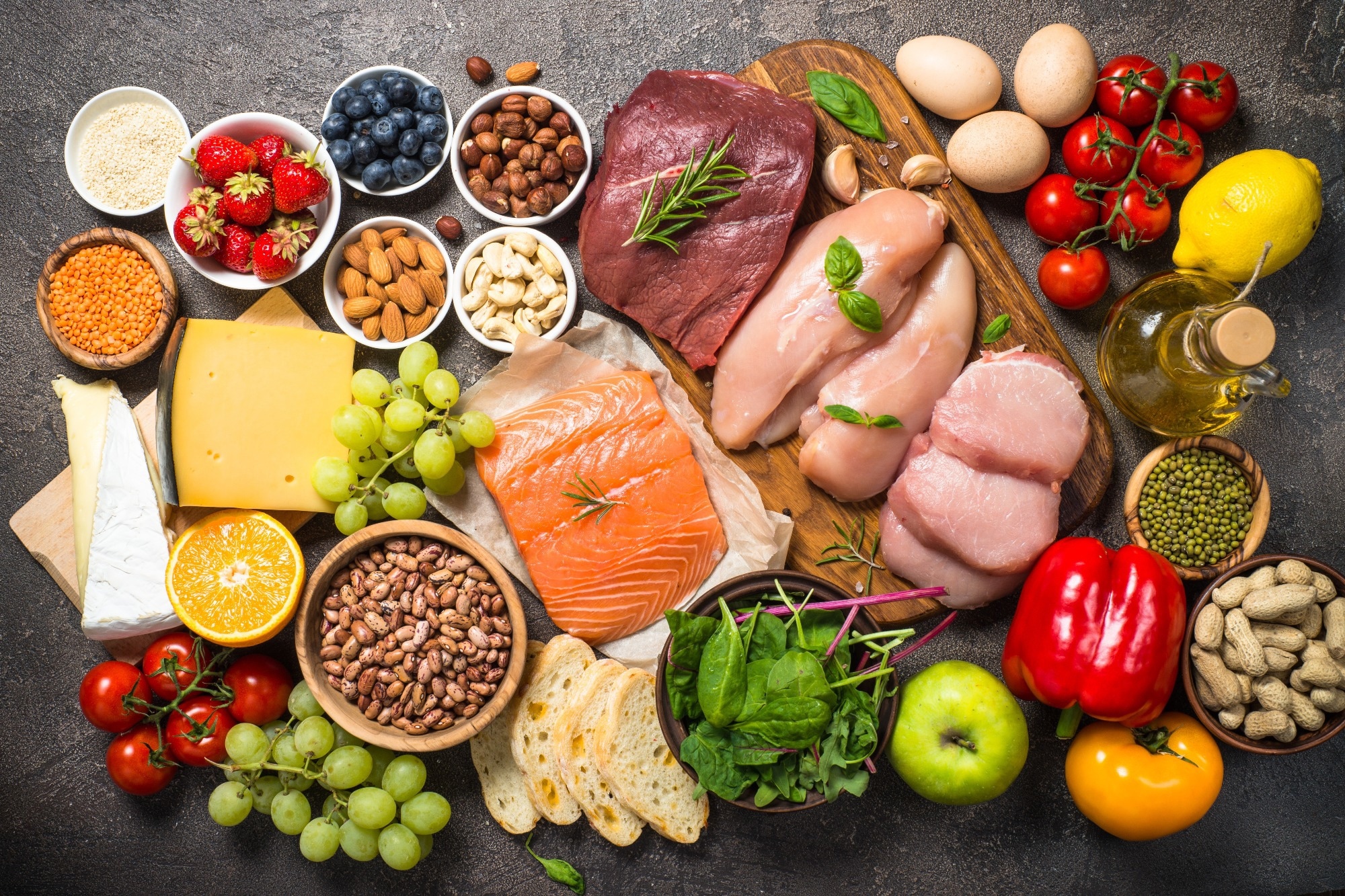Western dietary (WD) habits are known to cause many of today’s non-communicable diseases by promoting chronic inflammation. Recently, to counteract WD-induced metaflammation, ketogenic diets (KD) have emerged.
Given the drastic change in nutrient composition during KD, it is reasonable to hypothesize large-scale changes in the human metabolome. Furthermore, this alteration in the metabolome could also lead to changes in immunity.
A recent Clinical Nutrition study discusses alterations in the human metabolic fingerprint associated with KD.
 Study: A ketogenic diet substantially reshapes the human metabolome. Image Credit: nadianb / Shutterstock.com
Study: A ketogenic diet substantially reshapes the human metabolome. Image Credit: nadianb / Shutterstock.com
Background
WD entails the excessive intake of ultra-processed food with high quantities of sugar and refined carbohydrates. This diet has been linked to the development of various diseases, such as diabetes and obesity.
Previous research has shown that the excessive consumption of carbohydrates triggers aberrant activation of the NLRP3 inflammasome. This leads to a higher secretion of pro-inflammatory cytokines and, as a result, contributes to most modern non-communicable diseases.
Comparatively, KD involves a minimal intake of carbohydrates and leads to the hepatic synthesis of ketone bodies, thereby providing a robust alternate source of energy to the body’s peripheral tissues. One type of ketone body known as β-hydroxybutyrate (BHB) serves as a substrate for mitochondrial oxidative phosphorylation (OXPHOS) and leads to pleiotropic effects.
Recent research has shown that KD significantly bolsters human CD4 and CD8 T-cell immune capacity and the differentiation of regulatory and memory T-cells. These observations could indicate that the effects of KD on T-cell immunity may evoke marked changes to the human serum metabolite composition.
About the study
Forty healthy adult volunteers were recruited to participate in a three-week ad-libitum KD for a prospective nutritional intervention study. At the start (T0) and end of the study (T1), urine analyses and untargeted mass spectrometric metabolome analyses of the tryptophan pathway were performed. Serum metabolites were also quantified.
Prior to the start of the study, participants consumed a standard WD comprising about 55-60% carbohydrates, 25-30% fat, and 10-15% protein. In the KD, a maximum of 10% of the daily caloric intake was provided by carbohydrates, whereas the remaining diet consisted of 60-70% fat, 20-30% protein, and 10% carbohydrates.
All participants completed the study and reported sufficient levels of ketone bodies throughout the dietary intervention course.
Key findings
Even a short-term KD of three weeks fundamentally reshaped the human metabolome. In fact, the metabolic steady state adjusted rapidly towards the production and utilization of ketone bodies. This analysis also showed improved insulin and triglyceride levels and higher quantities of metabolites controlling mitochondrial protection and anti-inflammation.
The marked reduction of carbohydrates led to a reduction in both insulin and c-peptide levels, which may explain the moderate weight loss observed in the participants. It could not be confirmed whether the extent of weight loss correlated with the changes in serum metabolic parameters.
The fasting serum glucose concentration remained stable, whereas increased urea levels could be due to enhanced protein metabolism. Concentrations of alanine, glucogenic amino acid (AA) proline, and glutamine were markedly reduced, while leucine, isoleucine, and branched-chain AA (BCAA) valine showed higher abundances.
Higher fat consumption improved the serum lipid profiles of the participants. Importantly, a profound upregulation of both acylcarnitines and free fatty acids was observed.
During KD, high acylcarnitines imply a higher demand for long-chain fatty acids as substrates of β-oxidation. Using carnitine as a transport shuttle system, these substances must be transported into the mitochondrial matrix.
Linoleic acid (ω-6), linolenic acid (ω-3), docosahexaenoic acid (DHA), and eicosatetraenoic acid (ETA) levels were significantly elevated. This observed shift could contribute to the dampening of innate inflammation.
KD significantly shifted the metabolism of tryptophan towards kynurenic acid and kynurenine while attenuating the synthesis of quinolinic acid. Kynurenic acid has been shown to exert protective effects on mitochondrial respiration, while quinolinic acid is associated with mitochondrial dysfunction. Therefore, greater OXPHOS is supported by improved mitochondrial protection.
Conclusions
The current study demonstrated that even after a short period of KD, significant changes in metabolite composition could occur. These changes could have a beneficial impact on both immune cell fate and metabolic programming beyond ketone effects. No metabolic risk factors were identified.
Based on the findings, it could be concluded that KD is a useful therapeutic and preventive immunometabolic tool, at least in the short- and medium-term. However, more research is needed to determine whether KD produces similar beneficial effects in the longer term and whether short-term KD could provide lasting metabolic benefits.
Journal reference:
- Effinger, D., Hirschberger, S., Yoncheva, P., et al. (2023) A ketogenic diet substantially reshapes the human metabolome. Clinical Nutrition. doi:10.1016/j.clnu.2023.04.027